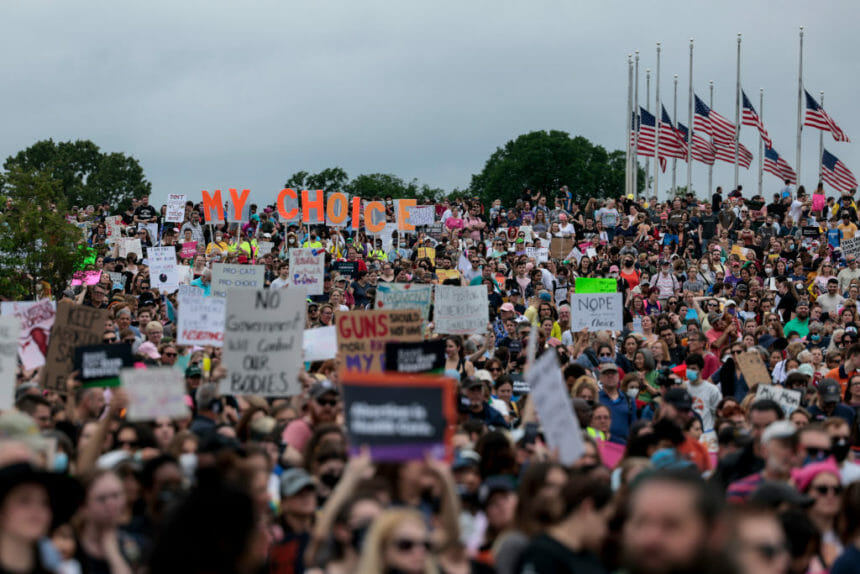The Supreme Court’s overturning of Roe v. Wade in June boosted the performance of Democratic candidates in key races during the midterm elections, a Kaiser Family Foundation analysis found.
Inflation and the future of American democracy were the single most important factors for voters at large, but abortion moved the needle in meaningful races that may end up influencing the balance of power on Capitol Hill when all races are called.
Overall, approximately 25% of voters said the decision in Dobbs v. Jackson Women’s Health Organization was “the single most important factor in their midterm vote.” Among registered Democrats, the percentage increases to three-in-10 voters. Majorities of Black and Hispanic women said the ruling impacted their voting behavior as well.
Additionally, voters who cited abortion access as their most important factor voted for Democratic candidates as opposed to Republicans by a measure of two-to-one. Among those who said they were angry about the ruling, 80% voted for Democratic House candidates.
KFF stated that in several states, most notably Pennsylvania, the overturning of Roe played a role in motivating voters to turn out and vote for candidates who share their opinion on abortion access.
Though Democrats largely voted for candidates to protect abortion rights, a small subset of Republicans voters who were focused on Roe ended up voting for Democratic Senate nominee John Fetterman. As KFF noted, his victory over Republican Senate nominee Mehmet Oz was among the most competitive in this election cycle.
Ultimately, abortion rights proposals won out in five states, (Montana, Kentucky, Michigan and Vermont), that had measures on the ballot this fall. The impact of the midterm elections is still being discussed among medical marketers but the legacy of the Dobbs decision continues to cast a long shadow on consumers.
Just last month, Mindshare and GroupM released research that found that the overturning of Roe has eroded consumer trust in brands while also placing the media under greater scrutiny around the topic of abortion.
More than 40% of LGBTQIA+ consumers, Hispanic men and nonbinary individuals said they were more likely to change their purchasing decisions due to Dobbs.







